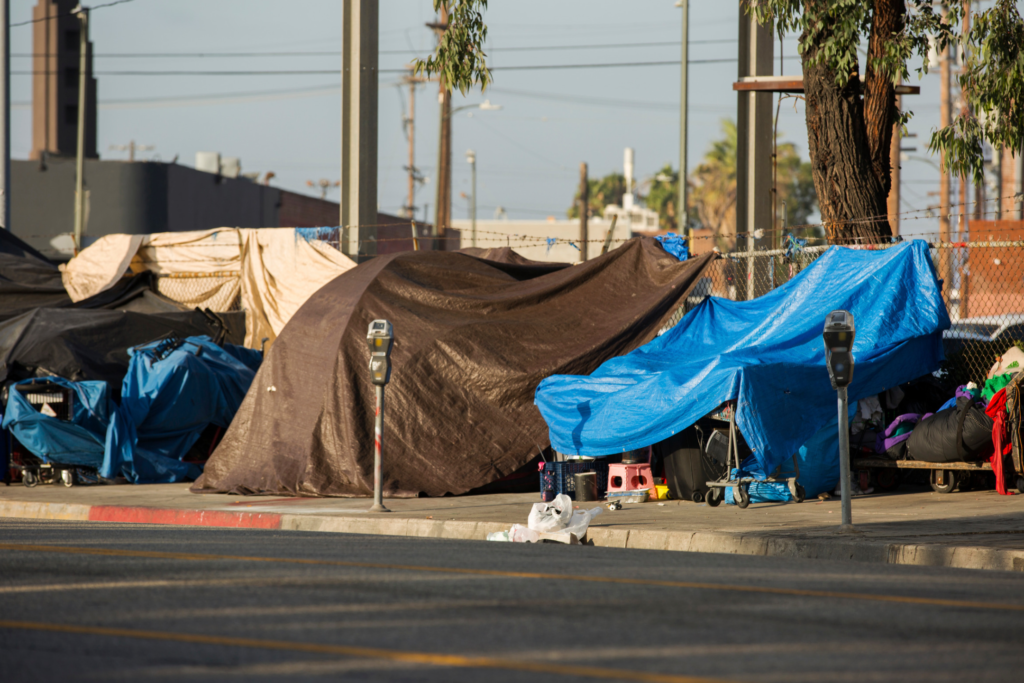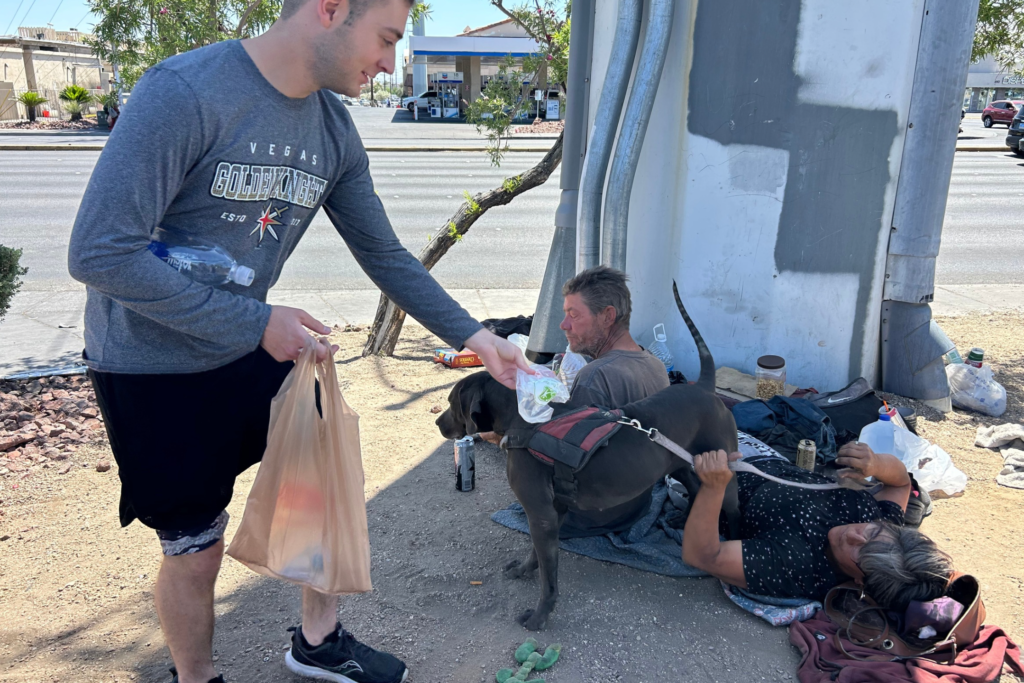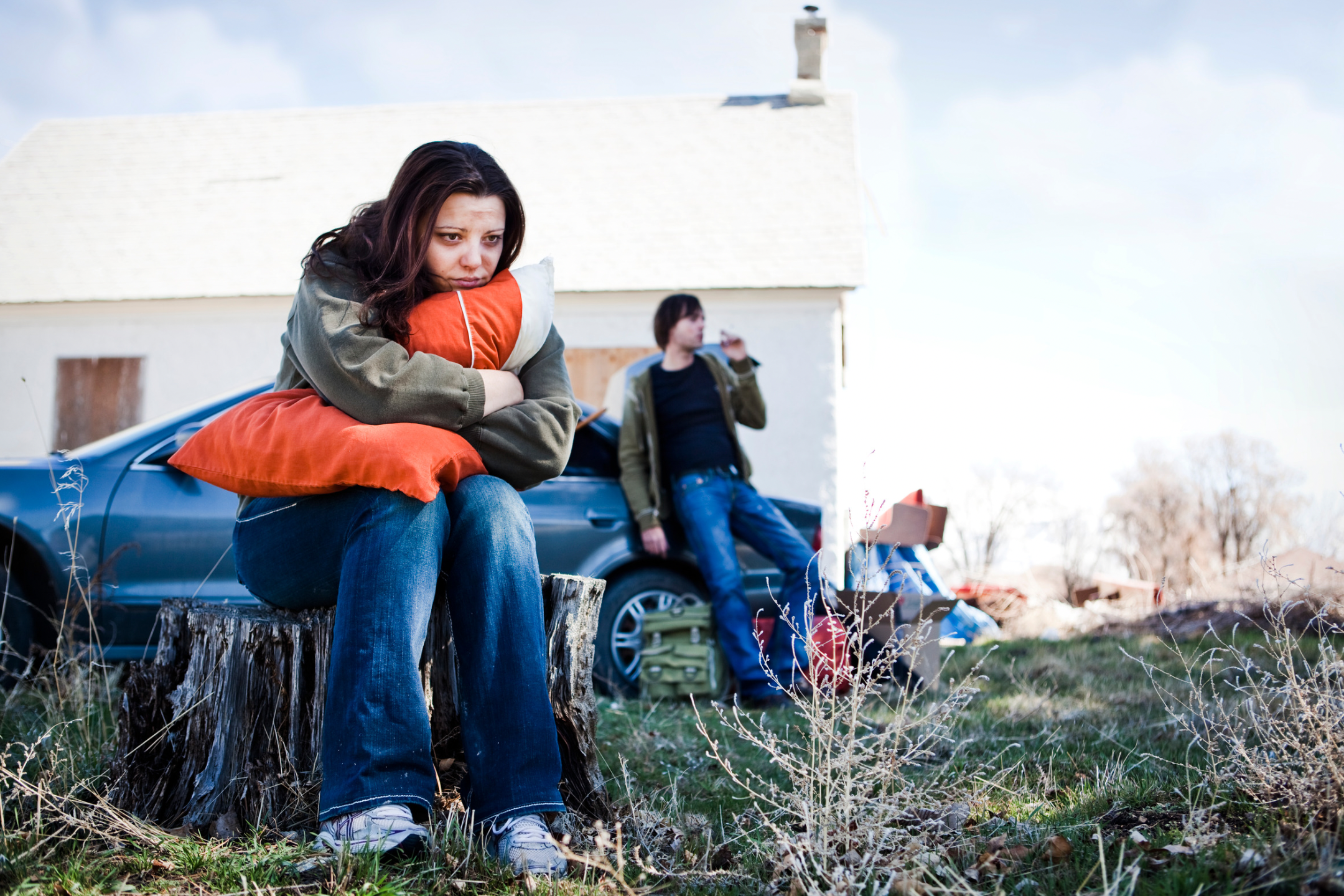Human trafficking and homelessness are both critical issues that often intersect. Individuals facing homelessness may be more susceptible to becoming victims of human trafficking because of their, including unstable housing, financial hardship, and a lack of supportive networks. Traffickers often exploit these weaknesses to manipulate and profit from vulnerable individuals.
Homeless Statistics
Las Vegas, known for its vibrant entertainment and tourism industry, faces a significant homelessness crisis. According to the 2023 Point-in-Time Count conducted by the Nevada Homeless Alliance, approximately 6,500 individuals experience homelessness in Southern Nevada on any given night. This figure represents a 4% increase from the previous year. The report highlights that a substantial portion of this population consists of families with children, veterans, and individuals struggling with mental health issues or substance abuse disorders. The stark contrast between the city’s wealth and the living conditions of its homeless residents underscores the urgent need for effective solutions.
Statistics of Homeless Individuals Becoming Trafficked
The intersection of homelessness and human trafficking poses a severe risk to vulnerable populations in Las Vegas. While specific statistics on the number of homeless individuals who become trafficking victims are challenging to obtain, research indicates a troubling trend. A study by the Polaris Project found that homeless youth are particularly at risk, with 30% of homeless youth reported as having been approached by traffickers. In Southern Nevada, local organizations estimate that a significant percentage of trafficking victims have experienced homelessness at some point in their lives. This alarming reality highlights the urgent need for targeted interventions.

How Homeless Individuals Becomes Trafficked
Homeless individuals often find themselves in precarious situations that make them prime targets for traffickers. In Las Vegas, several factors contribute to this vulnerability:
- Desperation for Basic Needs: Those experiencing homelessness often struggle to meet basic needs, such as food and shelter. This desperation can lead them to accept offers that seem helpful but may come with hidden consequences.
- Isolation and Lack of Support: Many homeless individuals lack a support network from family and friends, making them easier targets for traffickers who exploit their isolation and loneliness.
- Manipulation and Coercion: Traffickers often use manipulative tactics, promising job opportunities, financial support, or a sense of belonging. Once individuals are ensnared, they may be coerced into exploitative situations, including sex trafficking or forced labor.
- Criminalization of Homelessness: Anti-homeless laws and policing can further marginalize this population, pushing them into dangerous environments where traffickers operate.
What the Nevada Government is Doing to Solve the Homelessness Issue
Recognizing the urgent need to address homelessness and its connection to human trafficking, the Nevada government has implemented various initiatives and programs:
- Coordinated Community Action: The state collaborates with local governments, non-profit organizations, and service providers to create a coordinated response to homelessness. This approach includes outreach programs, emergency shelters, and transitional housing options.
- Support Services: Nevada has expanded access to essential support services, such as mental health care, addiction treatment, and job training programs to help individuals regain stability and independence.
- Public Awareness Campaigns: The government, in partnership with advocacy groups, runs campaigns aimed at raising awareness about both homelessness and human trafficking. These efforts educate the public about the signs of trafficking and emphasize the importance of supporting local homeless communities.
- Legislation and Funding: Nevada has increased funding for homelessness prevention programs and enacted legislation aimed at protecting vulnerable populations, including measures to prevent human trafficking and provide resources for survivors.
- Collaborative Efforts: The state works closely with law enforcement agencies to identify and assist trafficking victims while ensuring they receive the support they need, rather than facing criminal charges for their circumstances.
Why Do We (NHFI) Feed and Distribute Hygiene Kits to the Homeless with College Students

New Hope Foundation International (NHFI) is engaging college students in a transformative initiative at feeding the homeless and distributing hygiene kits in Las Vegas. The activity is called Giving Friday. This hands-on experience serves multiple purposes: it raises awareness about homelessness and human trafficking, provides students with invaluable life experiences, and cultivates a heart of giving.
By directly interacting with individuals facing hardship, students not only gain insight into the realities of social issues but also develop empathy and compassion for those in need. These experiences are crucial in shaping them into future leaders who are equipped to tackle global and social challenges.
NHFI’s initiative ultimately fosters a new generation of socially responsible leaders, committed to making a positive impact in their communities and beyond.
Conclusion
The issues of homelessness and human trafficking are deeply interconnected, particularly in places like Las Vegas. By understanding the statistics and factors contributing to this crisis, as well as ongoing governmental efforts to address it, we can better advocate for vulnerable populations and work towards more comprehensive solutions. Addressing these challenges requires a unified effort from all sectors of society, emphasizing compassion, support, and systemic change.

